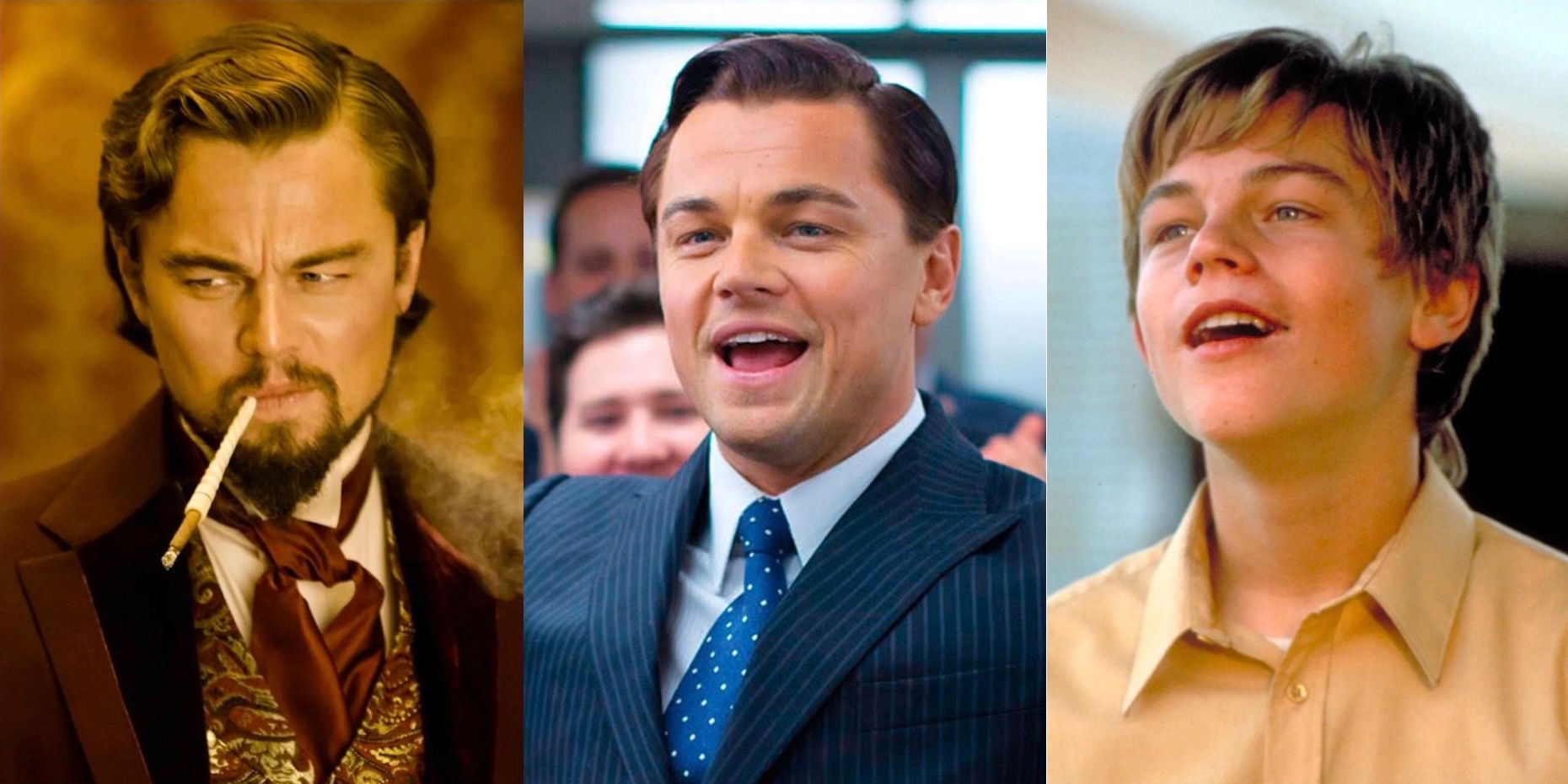It became a running joke among his fans that he’d always be the bridesmaid and never the bride, but Leonardo DiCaprio finally winning the Academy Award for ‘Best Actor’ at the fourth time of asking wasn’t an excruciating wait, all things considered.
That being said, following his first time being recognised at the Oscars when What’s Eating Gilbert Grape? landed him on the ‘Best Supporting Actor’ shortlist, it took over a decade for DiCaprio to be elevated into consideration as a leading man. However, he’s not a regular fixture among the nominees, with his role as Ernest Burkhart in Martin Scorsese’s Killers of the Flower Moon almost certain to make him a six-time nominee, even if he’s not expected to emerge victorious.

He has fared much better at the Golden Globes after notching three wins from 12 nominations, though, and has conspired to deliver a string of top-tier performances in such diverse films as Titanic, Catch Me If You Can, Gangs of New York, Shutter Island, Django Unchained, and Inception to name just a few without troubling the Academy.
With Killers of the Flower Moon sure to have him as part of the conversation again, it remains up for discussion where it will fall when determining where DiCaprio’s ‘Best Actor’ nominated turns fall in terms of their artistic merits.
Leonardo DiCaprio’s ‘Best Actor’ performances:
5. Danny Archer (Blood Diamond, Edward Zwick, 2006)
In the very same year that he headlined Martin Scorsese’s The Departed – which would win the Oscars for ‘Best Picture’ and ‘Best Director’ – DiCaprio’s lead performance as Billy Costigan was snubbed in favour of his turn in Ed Zwick’s political action thriller, which ended up failing to be nominated in either of the aforementioned categories.
Debate rages about whether or not Blood Diamond was even DiCaprio’s best work of 2006, which by extension makes it the lesser-regarded of his five ‘Best Actor’ nods. The film largely goes overlooked when discussing the star’s finest work, but besides the occasionally spotty accent, it stands tall as a ferociously committed and intensely physical performance.
As a mercenary forging a reluctant alliance with a fisherman to retrieve the titular stone for very different reasons, the spiky chemistry and simmering tension between DiCaprio and Djimon Honsou provides the narrative and emotional undercurrent that drives Blood Diamond forward. However, in addition to arguments over its status as the peak of his 2006, Honsou is in such formidable form that DiCaprio might not even be the best performer in the movie.
4. Rick Dalton (Once Upon a Time in Hollywood, Quentin Tarantino, 2019)
Whereas his first collaboration with Quentin Tarantino saw the actor make a rare detour into villainy, Once Upon a Time in Hollywood always felt as though it was the perfect character for the perfect actor at the perfect time.
Embracing Rick Dalton – and bringing some of his own personal baggage to the role – a superstar fast approaching middle age and unsure how to deal with that fact reads as if it could hit fairly close to home on paper, but DiCaprio foregoes that notion in favour of layering the protagonist with heart, humour, pathos, and no shortage of internal turmoil.
Once Upon a Time in Hollywood is often very funny – with the flamethrower and The Great Escape scenes particular highlights – but Dalton is constantly vulnerable and often melancholic as an actor trying to outrun his fading star, torn between his desire to restore his reputation to former glories and the realization that there may not be anything he can do to prevent it from becoming inevitable.
3. Howard Hughes (The Aviator, Martin Scorsese, 2004)
It seems unfathomable to think there were questions over whether or not DiCaprio would be able to convince as Howard Hughes in The Aviator, with the actor still in his late 20s and sporting those boyish looks for a role that required him to descend into the life of a pioneer-turned-recluse in a story that ran right until its subject was in their late 40s.
Of course, any doubts were swiftly assuaged when the actor’s second feature with Martin Scorsese landed him his first nomination for ‘Best Actor’, leaving audiences completely and utterly immersed in the story of how a trailblazing billionaire would succumb to the effects of obsessive-compulsive disorder and completely reinvent the concept of what he wanted his legacy to be.
Effortlessly showcasing the many sides of Hughes, from the charming and confident game-changer and renowned celebrity to the bearded, bedraggled shell of a man he would eventually become, it was the surest sign yet that DiCaprio’s evolution into maintaining a career-long status as one of the best in the business was undeniable. In fact, were it not for Jamie Foxx and Ray, he would have been a shoo-in for the trophy.
2. Hugh Glass (The Revenant, Alejandro G. Iñárritu, 2015)
Alejandro G. Iñárritu took the concept of man versus nature to an entirely different plane of cinematic existence in The Revenant, aided by DiCaprio on Oscar-winning form as the harrowingly beleaguered Hugh Glass.
The physicality of his ordeal is brutal, unflinching, and uncompromising, with the actor’s magnetic performance holding the viewer’s attention and keeping them on the edge of their seat, even when great stretches of the story unfold with minimal dialogue. It’s a role that not a lot of names could have pulled off to the degree that DiCaprio did, and he was richly rewarded with the ‘Best Actor’ prize for his dedication.
In lesser hands, Glass’ trials and tribulations could have easily devolved into a barbaric slog of borderline torture porn that became so unrelentingly bleak it bordered on the nihilistic, but there’s always that glimmer of hope lurking in DiCaprio’s eyes, even at the darkest moments, with Iñárritu’s stunning direction threading everything together.
1. Jordan Belfort (The Wolf of Wall Street, Martin Scorsese, 2013)
It may have been The Revenant that won him that elusive ‘Best Actor’ trophy, but The Wolf of Wall Street features perhaps the single greatest performance of DiCaprio’s entire career.
Whether he’s talking directly to the camera, rallying the troops, embarking on drug-induced mania, leading a life of ill-gotten wealth and excess, showing reckless disregard for anything other than himself or proudly wearing his narcissism on the sleeve for all to see, Jordan Belfort is not a likeable figure.
And yet, in DiCaprio’s hands, he’s far too easy to root for. Pivoting from charm and charisma to nefarious arrogance and a desperate sense of self-preservation on a dime, there’s never any doubt that Belfort is a morally reprehensible character, but the leading man’s seamless pinballing from comedy to drama and back again is a roller-coaster that no other performer could have strapped in for without going flying off the rails.

